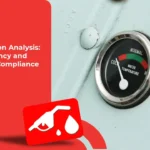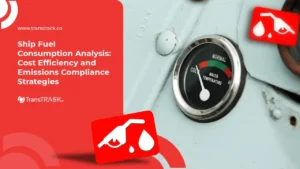Impact, How to Fix, and Causes of a Stiff Clutch
Posted on June 10, 2024 by Nur Wachda Mihmidati

Driving a car with a stiff clutch can be a very uncomfortable and even dangerous experience. This problem is often overlooked by many drivers, even though it can signal serious damage to the clutch system. In this TransTRACK article, we will discuss the common causes of a loud car clutch, its impact on driving comfort and safety, and the steps that can be taken to prevent and resolve this issue.
Common Causes of a Stiff Clutch
A Stiff Clutch can be caused by several factors. Here are the common causes:
Damaged or Worn Clutch Cable
An old or worn clutch cable can cause clutch movement to become more difficult. Damaged or dirty cables can hinder smooth clutch operation.
Mechanical Clutch Problems
Clutch mechanical components such as the bearing, liberator fork, or clutch spring can have problems. If any of these components are damaged or worn, the clutch may become hard to act on.
Reduced or Leaking Hydraulic Fluid
In hydraulic clutch systems, reduced or leaking hydraulic fluid can cause a drop in pressure, which makes the clutch harder to step on. It is important to check the hydraulic fluid regularly and ensure there are no leaks.
Worn Clutch Plate
A worn clutch plate can cause the contact surface to become uneven or slippery. This can make the clutch feel heavier when stepped on, as more force is required to operate it.
Rigid or Damaged Clutch Per
A stiff or damaged clutch cable can make the clutch pedal feel very hard when stepped on. A clutch cable that is not functioning properly will cause a greater load on the clutch pedal.
Solving the problem of a hard clutch requires a thorough check and repair of the problematic components. It is best to take the car to a repair shop to be checked by a professional mechanic in order to determine the exact cause and make the necessary repairs.
How to Fix a Stiff Clutch?
A Stiff Clutch can be caused by several factors. Here are the common causes:
Check the Clutch Cable
A worn or damaged clutch cable can cause the clutch to become hard. Be sure to visually inspect the condition of the cable and feel if there is any stiffness when pressed. If the cable looks damaged or dry, apply lubricant or replace it with a new one.
Check the Clutch Mechanical System
Worn or damaged liberator bearings and liberator forks can cause a hard clutch. Perform visual and manual checks to ensure that all components move smoothly. If any are damaged or worn, replace them immediately.
Check Hydraulic Fluid
On hydraulic clutch systems, check the hydraulic fluid level in the reservoir. Reduced or leaking fluid can cause pressure drop and make the clutch hard. Add fluid as needed and check for leaks.
Check the Clutch Plate
A worn or damaged clutch plate can cause the contact surface to become uneven. This will make it more difficult to engage the clutch. If the clutch plate is worn, replace it immediately.
Check the Clutch Per
A stiff or damaged clutch cable can cause the clutch pedal to become very hard when stepped on. Check the condition of the per and ensure that there is no damage or excessive stiffness. If necessary, replace the damaged clutch per with a new one.
Impact of a Stiff Clutch
A Stiff Clutch has a bad impact too. Here are the impacts:
Driving Comfort
A hard clutch makes the driver need to exert more effort to step on the clutch pedal. This can cause discomfort, especially when driving for a long time or in traffic. Drivers can feel tired and uncomfortable during the journey.
Driving Safety
A hard clutch can lead to less responsive vehicle operation. This can be dangerous when the driver needs to shift gears quickly, for example in emergency situations or when driving on difficult terrain. Difficulty in engaging the clutch can increase the risk of an accident.
Further Damage
A hard clutch is often a sign of a problem with the clutch or transmission components. If not corrected immediately, this problem can cause further damage to other parts of the clutch system. Untreated damage can lead to more expensive repairs and shorten the life of the vehicle.
Tips to Prevent a Stiff Clutch
Here are tips to prevent a stiff clutch:
Routine Maintenance
Perform regular maintenance on the clutch system according to the schedule recommended by the car manufacturer. This includes changing the transmission oil and checking the clutch components periodically. Regular maintenance helps keep all components in good condition and functioning optimally.
Periodic Checks
Perform periodic checks on the clutch cable, hydraulic fluid and other mechanical components. Make sure there is no wear or damage that could cause the clutch to become hard. Early detection of problems allows for prompt repair before the problem becomes more serious.
Drive Carefully
Avoid the habit of stepping on the clutch excessively or holding the clutch for a long time when stopped at a red light. Driving carefully and avoiding excessive load on the clutch can extend the life of the clutch components. Maintain good driving habits to prevent unnecessary wear and tear on the clutch system.
Dealing with the problem of a hard car clutch can indeed interfere with driving comfort and safety. However, with regular maintenance, periodic checks, and good driving habits, you can prevent and solve this problem. Don’t let clutch problems disrupt your driving experience.
To ensure your vehicle is always in optimal condition, use the Vehicle Maintenance System from TransTRACK. This system helps you monitor and manage vehicle maintenance effectively, so you can prevent problems before they occur. Check out more information and get the best vehicle maintenance solutions with TransTRACK.
Recent Post
Topic :
vehicle enginevehicle maintenance
 Bahasa Indonesia
Bahasa Indonesia









